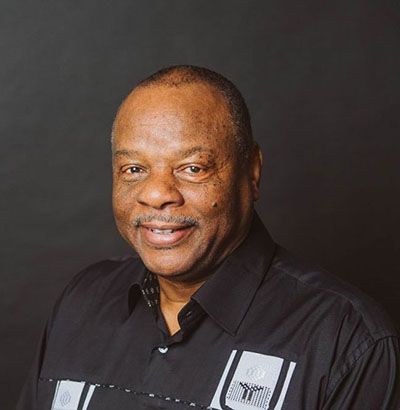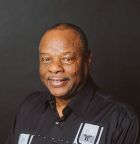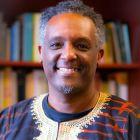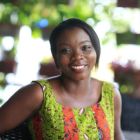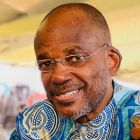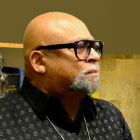Molefi Kete Asante, Ph.D.
- Father of Afrocentricity, Professor Africology
“As a people, our most cherished and valuable achievements are the achievements of spirit. With an Afrocentric spirit, all things can be made to happen; it is the source of genuine revolutionary commitment.”

Biography
Father of Afrocentricity | Author | Scholar | History Maker | Mentor
Since his founding of the first PhD program in Black Studies at Temple University 1988, Molefi Kete Asante has solidified far-reaching impact of Temple's academic leadership in establishing a fundamental base for innovative scholarship and the maturing of the discipline of Africology. The program was a major, defining, and transformative achievement in the advancement of the discipline and in the discipline’s continuous initiatives and struggles to expand intellectual and institutional space for a truly multicultural, global, and quality education beyond the existing dominant monocultural Eurocentric paradigm and practice.
Molefi Kete Asante is Professor and Chair, Department of Africology at Temple University in Philadelphia. He is the co-founder of Afrocentricity International and is President of the Molefi Kete Asante Institute for Afrocentric Studies. He is the Founding and Current Editor, Journal of Black Studies and first director of UCLA’s Center for Afro-American Studies in 1969.
Asante, often called the most prolific African American scholar, has published 100 books, among the most recent are Human Being Human, The Perilous Center, or When Will the African Center Hold; Radical Insurgencies; The History of Africa, 3rd Edition; An Afrocentric Pan Africanist Vision; The African American People: A Global History; Erasing Racism: The Survival of the American Nation; Revolutionary Pedagogy; African American History: A Journey of Liberation; African Pyramids of Knowledge; Maulana Karenga: An Intellectual Portrait; Facing South to Africa, and, the memoir, As I Run Toward Africa.
Asante has published more than 500 articles and is considered one of the most quoted living African authors as well as one of the most distinguished thinkers in the African world. He has been recognized as one of the 10 most widely cited African scholars. He was named a HistoryMaker with an interview in the Library of Congress. In 2019 the National Communication Association named him an NCA Distinguished Scholar, its highest honor, saying that his writings were “spectacular and profound”. He received his Ph.D. from the University of California, Los Angeles, at the age of 26, and was appointed a full professor at the age of 30 at the State University of New York at Buffalo. At Temple University he created the first Ph.D. Program in African American Studies in 1988. He has directed more than 140 Ph.D. dissertations making him the top producer of doctorates among African American scholars. He is the founder of the theory of Afrocentricity and the think-tank, The Molefi Kete Asante Institute for Afrocentric Studies in Philadelphia.
Asante was born in Valdosta, Georgia, of Sudanese (Nubian) and Nigerian (Yoruba) DNA heritage. He is one of sixteen children. He is married to Ana Yenenga, an African Costa Rican, with Akan ancestry via Jamaica. He has three children, Mario, Eka, and MK, Jr., the latter was born in Zimbabwe. He has six grandchildren, Jamar Ramses, Ayaana, Aion, Nova, Akira, and Akila. He is a poet, novelist, dramatist, and a painter.
Work
The Molefi Kete Asante Institute:
The Molefi Kete Asante Institute creates spaces for discussion, critical engagement with principal speakers, and frank talk with all stakeholders in the rise of African consciousness. We hold book signings, symposia, conferences, and lectures to elevate the reporting of factual information about the condition of the African world.
Our network is international and through our programming, training, and teaching we interact with other organizations devoted to creating a worldwide consciousness of history and culture. We see the effects of colonialism and enslavement on the African world, and especially in the United States, Brazil, Colombia, and Caribbean nations. We intend to impact entire communities that have fixated upon self-hatred, negative portrayals of Africans, deception, and the defeat of African agency.
Among the recent and upcoming topics are decolonizing curricula, democratizing politics, food security, economic transformation, Afrocentric governance, classical African models for contemporary issues, and Afrocentric educational practices for public and private schools.
